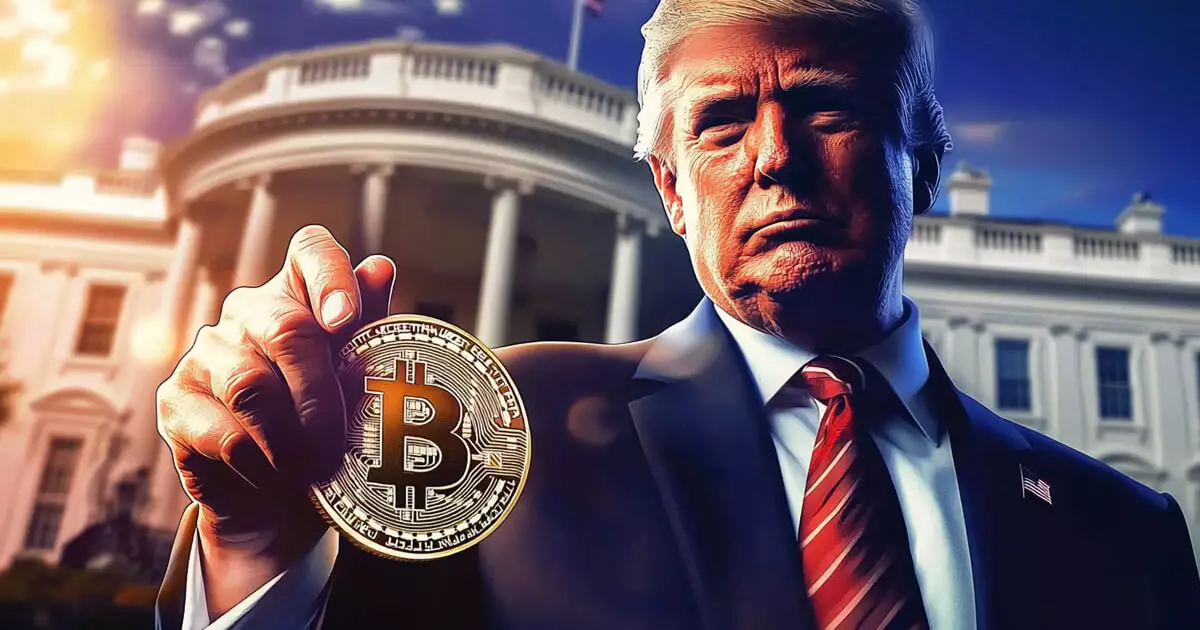The emergence of the cryptocurrency market, currently valued at around $3 trillion, has prompted calls for dedicated leadership to navigate its complex landscape. Former Commodity Futures Trading Commission (CFTC) Chair Chris Giancarlo, affectionately dubbed “Crypto Dad,” has been positioned as the frontrunner for the newly proposed role of White House “crypto czar.” This initiative, reportedly being championed by the Trump administration, seeks to establish a coherent framework for U.S. cryptocurrency policies and regulatory measures, contrasting sharply with the current administration’s enforcement-heavy approach.
Giancarlo’s tenure as CFTC chair from 2017 to 2019 marked a pivotal moment in the integration of digital assets into mainstream finance. He was at the helm during the rollout of bitcoin futures, a significant development that paved the way for institutional investment in cryptocurrencies. His current involvement with the Digital Dollar Project and numerous blockchain advocacy groups highlights his commitment to exploring the potential of digital currencies while weighing their implications for traditional financial systems. Notably, Giancarlo has expressed skepticism about a federal central bank digital currency (CBDC), which aligns with the evolving priorities of the Trump campaign, emphasizing innovation over regulation.
Should the position of crypto czar be officially established, it would play an instrumental role in shaping the future of the U.S. cryptocurrency landscape. Responsibilities would likely include devising regulatory frameworks that promote transparency and stability while fostering innovation in the sector. In addition, oversight of stablecoins—cryptocurrencies pegged to fiat currencies—would be a crucial component, given their growing prominence in the financial ecosystem. This initiative aims to ensure that U.S. crypto firms can thrive amid increasing global competition, especially as some argue that regulatory pressures have driven innovation offshore.
The response from the cryptocurrency community has been largely positive, with industry leaders like Coinbase CEO Brian Armstrong and Ripple’s Brad Garlinghouse expressing support for Giancarlo’s potential appointment. They see his leadership as a route towards the regulatory clarity that the sector desperately needs. However, not all advisors within Trump’s circle are in favor of adding new bureaucratic roles, citing contradictions with the administration’s longstanding commitment to reducing federal oversight. Critics argue that creating new positions could further entrench inefficiencies in governmental operations.
As discussions surrounding the crypto czar role unfold, it remains uncertain whether it will receive the formal backing needed to manifest into a groundbreaking shift in U.S. digital asset policy. Nevertheless, Giancarlo’s nomination presents an opportunity to redefine regulatory strategies, aligning them with the rapid evolution of the cryptocurrency world. What is clear, however, is that a well-considered and proactive approach to cryptocurrency regulation could serve to bolster the U.S.’s position at the forefront of the global digital economy, balancing the dual needs of oversight and innovation in a landscape that demands agility and foresight.

